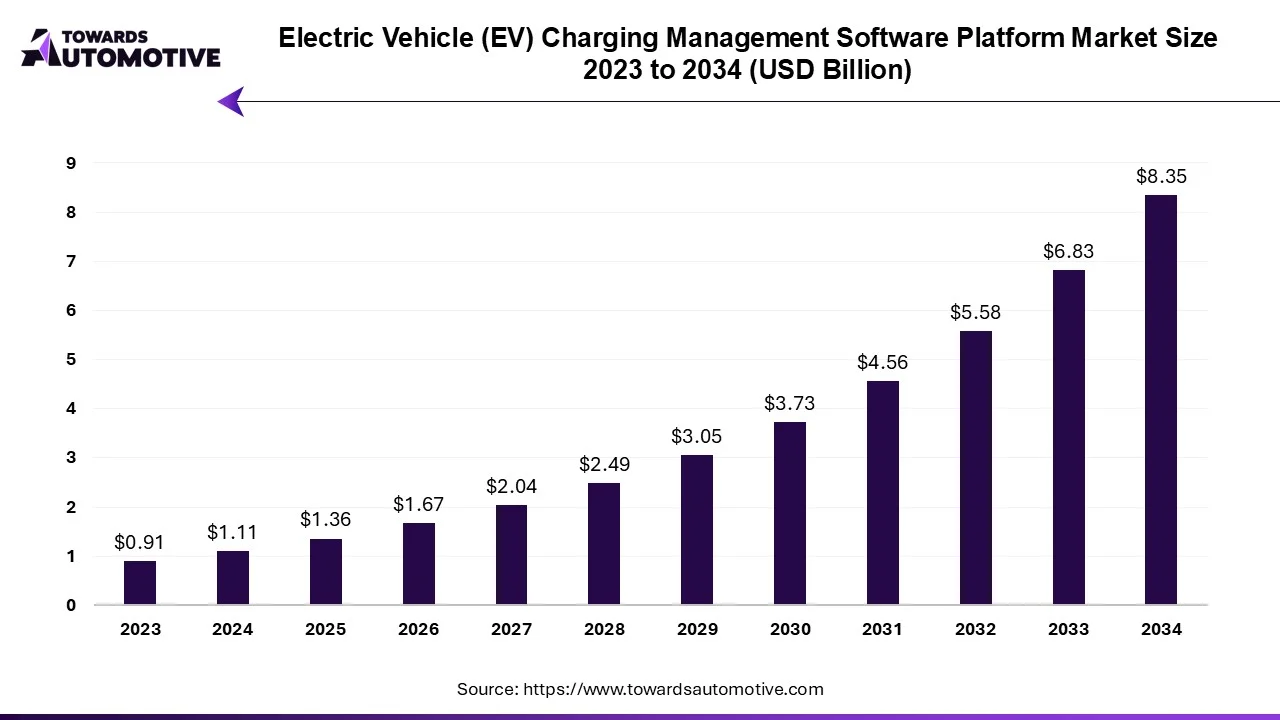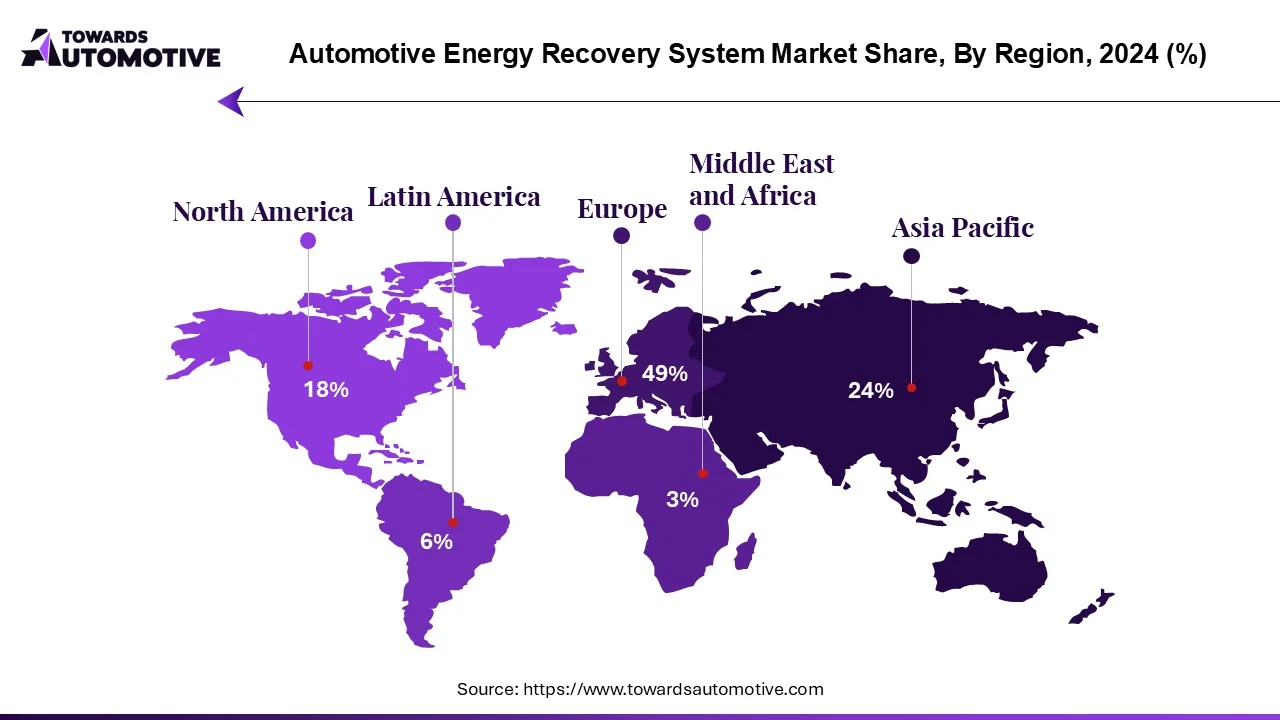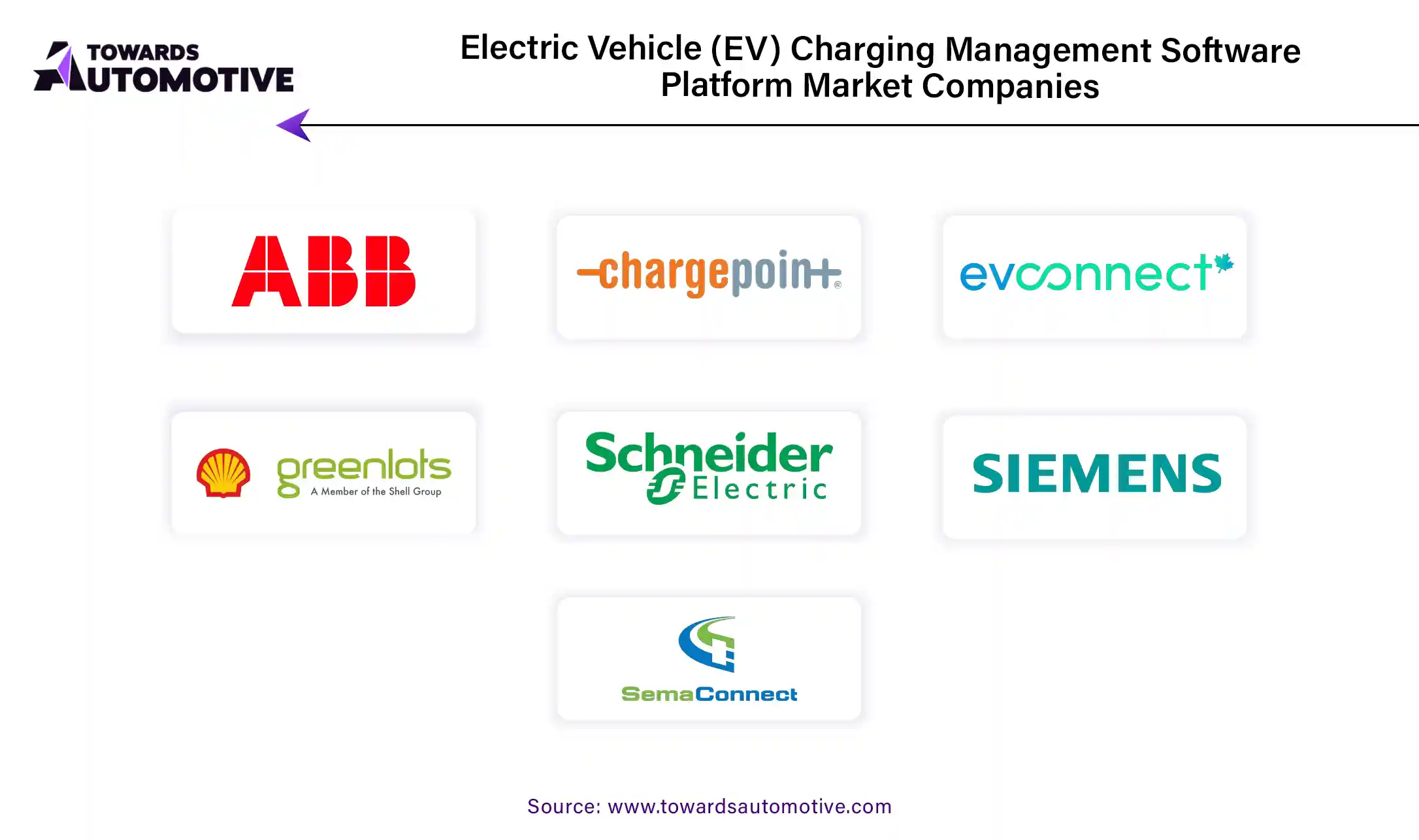October 2025
The electric vehicle (EV) charging management software platform market is forecasted to expand from USD 1.36 billion in 2025 to USD 8.35 billion by 2034, growing at a CAGR of 22.33% from 2025 to 2034.

The EV charging management software platform market is experiencing robust growth and is expected to expand significantly in the coming years, driven by the rapid adoption of electric vehicles worldwide and the growing need for efficient charging infrastructure. With the increasing demand for clean and sustainable transportation solutions, governments, businesses, and consumers are investing in electric vehicles and charging infrastructure, creating a favorable environment for the growth of the EV charging management software platform market.
One of the primary drivers of market growth is the increasing adoption of electric vehicles (EVs) globally. Governments around the world are implementing policies and incentives to promote EV adoption, such as subsidies, tax incentives, and emissions regulations. As a result, the sales of electric vehicles, including battery electric vehicles (BEVs) and plug-in hybrid electric vehicles (PHEVs), are growing rapidly, driving the demand for EV charging infrastructure and management solutions.
Additionally, the expansion of charging infrastructure is fueling the demand for EV charging management software platforms. As the number of EVs on the road increases, there is a growing need for reliable and efficient charging solutions to support the charging needs of EV owners. EV charging management software platforms play a crucial role in managing charging stations, optimizing charging schedules, and providing billing and payment solutions, thus enabling the efficient operation of charging networks.
Furthermore, advancements in technology are driving innovation in the EV charging management software platform market. Software platforms equipped with features such as smart grid integration, demand response capabilities, and predictive analytics are enabling more efficient and sustainable charging solutions. These advanced features help optimize energy usage, reduce grid congestion, and enhance the overall performance of charging networks, driving the adoption of EV charging management software platforms.
Despite the positive growth outlook, the EV charging management software platform market faces several challenges and constraints. One of the primary challenges is the lack of interoperability and standardization in charging protocols and software platforms. The absence of common standards for EV charging infrastructure and software solutions can create compatibility issues and interoperability challenges, hindering the seamless integration and operation of charging networks.
Moreover, the complexity of EV charging ecosystems poses challenges for software platform developers and operators. EV charging networks comprise various stakeholders, including utilities, charging station operators, EV manufacturers, and software providers, each with different requirements and preferences. Developing software platforms that can cater to the diverse needs of these stakeholders while ensuring compatibility and scalability can be challenging.
Additionally, the EV charging management software platform market faces challenges related to data privacy and security. As EV charging networks collect sensitive information, such as user data, payment details, and energy consumption data, ensuring the privacy and security of this information is paramount. Data breaches and cybersecurity threats pose significant risks to EV charging networks and can erode consumer trust, highlighting the importance of robust security measures and compliance with data protection regulations.
Despite these challenges, market players are actively investing in research and development initiatives to overcome technical barriers and enhance the functionality and reliability of EV charging management software platforms. Collaborative efforts to establish common standards and interoperability guidelines are also underway to address compatibility issues and promote the widespread adoption of EV charging infrastructure and management solutions.
In 2022, the European electric vehicle (EV) charging management software platform market emerged as a dominant force, boasting a substantial size of around USD 0.42 billion. This commanding position can be attributed to concerted efforts from governments and businesses within the region, who are actively promoting EV adoption through a range of incentives, subsidies, and infrastructure investments. Such initiatives aim to accelerate the transition towards sustainable transportation by facilitating the widespread adoption of electric vehicles.

The European landscape has witnessed a notable uptick in environmental consciousness, with both policymakers and consumers increasingly prioritizing eco-friendly alternatives to traditional combustion-engine vehicles. This shift in mindset has fueled a surge in electric vehicle purchases across the continent, creating a pressing need for efficient and accessible charging solutions. As a result, the demand for EV charging management software platforms has experienced a corresponding uptrend, driven by the imperative to optimize the charging infrastructure to meet the growing needs of EV owners.
Moreover, the European market has witnessed the emergence of innovative technologies and user-friendly platforms designed to enhance the overall EV charging experience. These advancements not only streamline the charging process but also contribute to greater user satisfaction, thereby incentivizing more individuals to make the switch to electric vehicles. From intuitive mobile applications to smart charging stations equipped with advanced features, such as scheduling and energy management capabilities, these technological innovations play a pivotal role in driving the market's expansion.
Furthermore, the European market benefits from a conducive regulatory environment, characterized by stringent emissions standards and ambitious sustainability targets. Governments across the region have implemented robust policies aimed at reducing carbon emissions and curbing air pollution, thereby creating a fertile ground for the growth of the EV charging management software platform market. By aligning with these regulatory frameworks and leveraging technological advancements, businesses within the sector can capitalize on the burgeoning opportunities presented by the growing EV market in Europe.
In essence, the European EV charging management software platform market stands poised for continued expansion, fueled by a convergence of factors including government support, increasing environmental consciousness, technological innovation, and evolving consumer preferences. As the transition towards electric mobility gathers momentum, the role of efficient charging solutions in facilitating this transition cannot be overstated, positioning the market for sustained growth in the years to come.
The EV charging management software platform market can be segmented based on deployment model, application, charging station type, end-user, and geography.
By Deployment Model
By Application
By Charging Station Type
By End-User
By Geography

Key players in the EV charging management software platform market include
These companies are actively developing and offering EV charging management software platforms with advanced features and capabilities to meet the growing demand for efficient and sustainable charging solutions.
These recent developments highlight the growing innovation and competition in the EV charging management software platform market, as companies strive to develop solutions that address the evolving needs of stakeholders across the electric vehicle ecosystem.
The COVID-19 pandemic had a significant impact on the EV charging management software platform market, presenting both challenges and opportunities for market players. The pandemic-induced lockdowns and restrictions led to a temporary slowdown in EV adoption and charging infrastructure deployment, as automotive sales and economic activities were disrupted.
However, despite the short-term challenges, the pandemic underscored the importance of sustainable transportation solutions and accelerated the transition to electric vehicles. Governments and businesses increasingly recognized the role of EVs in reducing greenhouse gas emissions, improving air quality, and enhancing energy security, leading to renewed commitments and investments in EV infrastructure.
Moreover, the pandemic highlighted the importance of digitalization and remote management capabilities in EV charging infrastructure. With social distancing measures and remote work becoming the new norm, there was a growing demand for cloud-based EV charging management software platforms that enable remote monitoring, control, and maintenance of charging networks. This trend towards digitalization and remote management is expected to continue post-pandemic, driving the adoption of advanced software solutions in the EV charging market.
Overall, while the COVID-19 pandemic presented challenges to the EV charging management software platform market, it also accelerated the transition to electric mobility and underscored the importance of digitalization and remote management capabilities in charging infrastructure. As the global economy recovers and EV adoption continues to grow, the market is expected to rebound, with innovative software solutions playing a crucial role in enabling efficient and sustainable charging networks.
October 2025
October 2025
October 2025
October 2025
We offer automotive expertise for market projections and customizable research, adaptable to diverse strategic approaches.
Contact Us